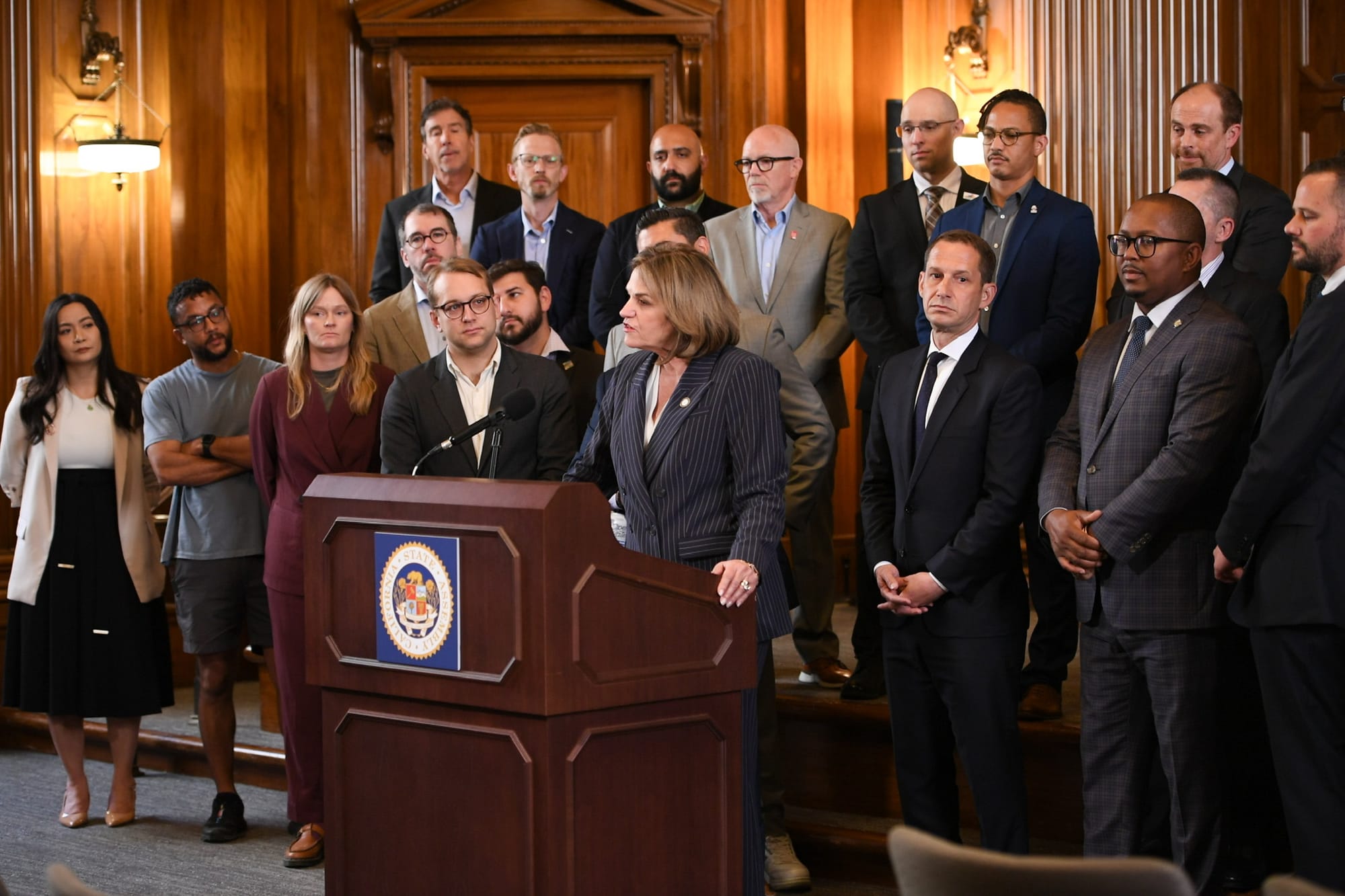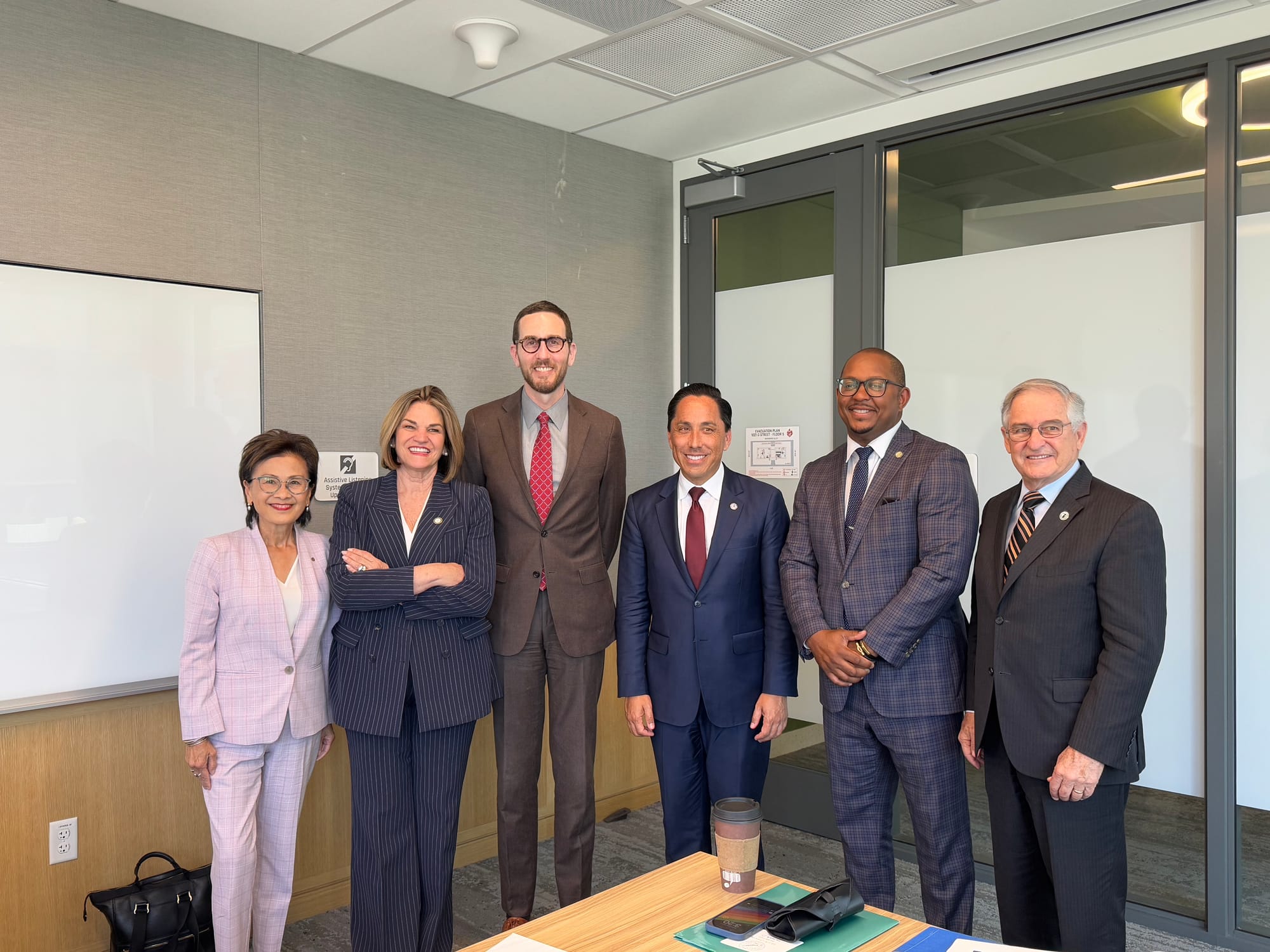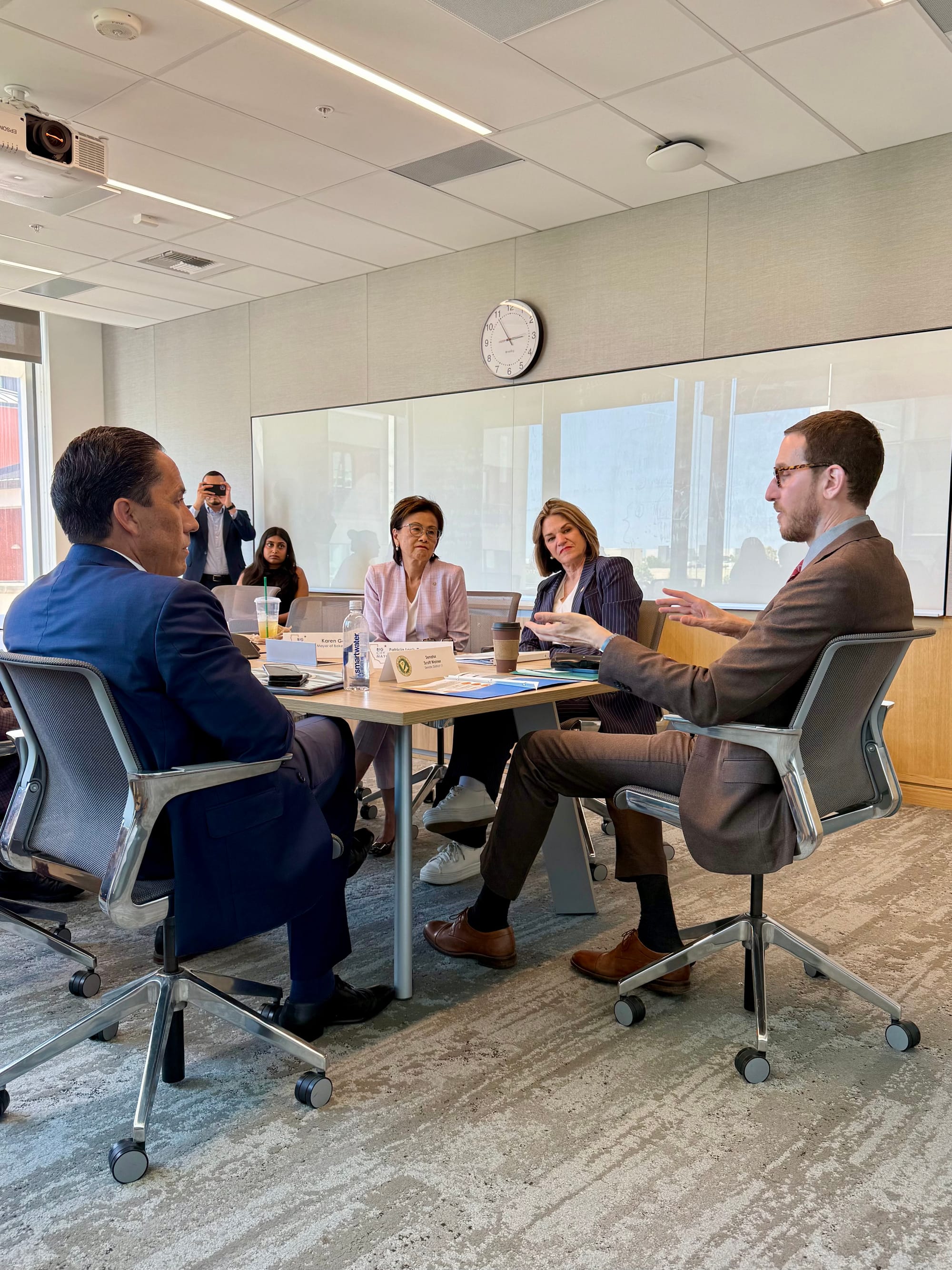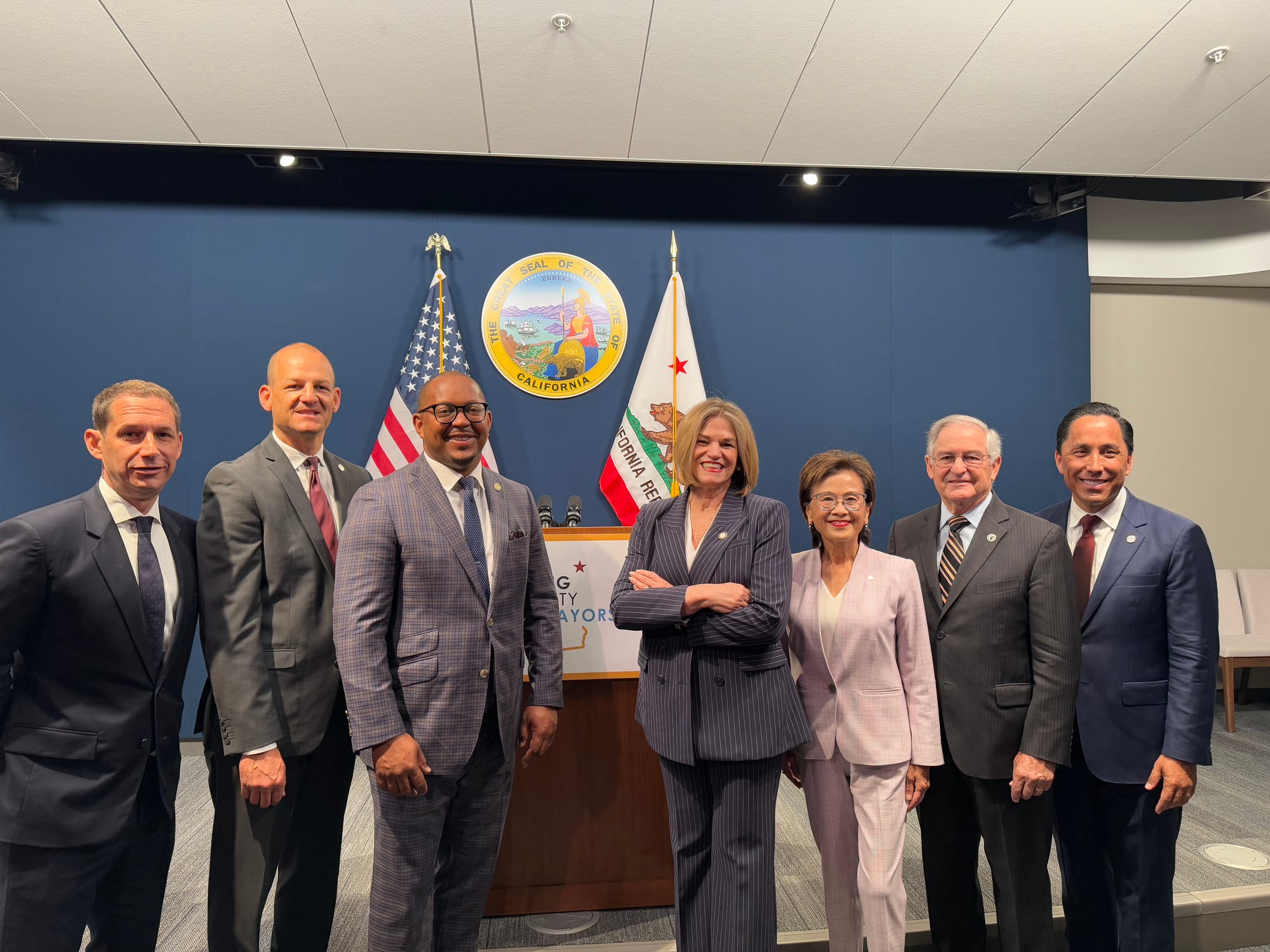🗞️ Riverside News- February 2, 2026
Council will consider a 117-unit apartment development, Mayor addresses common misconceptions...
Mayor Lock Dawson on Leading the Big City Mayors Coalition and Bringing State Resources Home.

If you've ever wondered how Riverside makes its voice heard in Sacramento, the answer is simple: we show up, we speak up, and we fight for results. As your Mayor, I take that responsibility seriously, because the policies debated at the State Capitol have real impacts on our neighborhoods, our families, and our future, so our presence there is essential.
Mayors have a unique responsibility; we are the closest to the people. When issues like housing, homelessness, and economic opportunity affect our residents, it's our job to fight for solutions. I've always believed that Riverside is strongest when our voice is heard where decisions are made.
That's one reason I serve as Chair of Big City Mayors, a bipartisan coalition of California's 13 largest cities. I'm leading mayors from San Diego to San Francisco championing priorities we all share: building more housing, addressing homelessness with urgency and compassion, and making sure California remains a hub for innovation and quality jobs. Part of that work involves advocating for bills in Sacramento that directly impact our residents and shape the discourse of how state funds are allocated.
For Riverside, this role means your voice is amplified. It means that when state funding is on the table, like the direct funding allocations we receive every year to address homelessness, I am there making sure Riverside gets its fair share.

The Governor has recently signed several bills into law that the Big City Mayors coalition strongly supported. Below are highlights of key bills, what they do, and what they mean for Riverside.
What it does: Creates "presumptive eligibility" so people with serious mental illness, especially those who are homeless, recently released from a hospital, recently incarcerated, or repeatedly in crisis, can more easily qualify for intensive wraparound programs (known as Full-Service Partnerships). These programs link housing with treatment, but enrollment still requires a clinician's recommendation and depends on available capacity.
Why it matters for Riverside: This gives our community another tool to address homelessness; it means more of our residents in crisis can be stabilized. It also means our local providers will have stronger state backing to deliver housing-linked, culturally responsive care.
What it does: Allows emergency room doctors (not just psychiatrists) to place someone on a 72-hour hold if they are at risk of harming themselves or others. Until now, holds were limited to psychiatrists and a narrow group of designated professionals.
Why it matters for Riverside: When someone in crisis shows up in an ER, doctors will no longer have to wait for another specialist to intervene. This reduces the chance that someone dangerous to themselves or others is released too soon, and it ensures more timely care.
What it does: Enables jail psychiatrists or psychologists to give emergency medication to people facing misdemeanor charges who are too mentally ill to go to trial, but only for up to 72 hours at a time and with regular court reviews.
Why it matters for Riverside: This helps stabilize individuals in custody who might otherwise remain untreated and cycle in and out of jail. While it has strict safeguards, it provides another pathway to recovery and reduces strain on our local justice system.
What it does: Expands the CARE Court program to include people with certain serious mental health conditions, like schizophrenia and bipolar disorder with psychotic features. This also makes it easier for courts and health providers to share information so individuals can be connected to the right treatment more quickly.
Why it matters for Riverside: CARE Court helps divert people with severe mental illness away from jails and into treatment. By expanding eligibility and speeding up referrals, this law can connect more people to stabilization and recovery.


BCM meeting with Senator Scott Weiner. (Courtesy of the Office of Mayor Patricia Lock Dawson)
In addition to these BCM coalition-aligned bills, Riverside has also supported legislation directly benefiting our city. Here are several recent examples that were signed into law.
What it does: Authorizes the California FAIR Plan Association to borrow funds, issue bonds or lines of credit (via IBank) with approval from the Insurance Commissioner. These funds can be used to pay claims, improve liquidity, and strengthen its ability to cover large disasters.
Why it matters for Riverside: For homeowners in high-risk wildfire areas, it strengthens the safety-net insurer of last resort, making it less likely that they'll face insurance unavailability or instability after a major disaster. While this does not guarantee affordability and broader market conditions will still strongly influence cost and access, AB 226 improves the financial stability of the FAIR Plan.
What it does: Exempts muralists from needing a contractor's license to create or restore murals under a lawful agreement. This does not mean no oversight; building/structural code, safety, labor, and other applicable laws still apply.
Why it matters for Riverside: Lowers barriers for local artists, makes it easier to bring murals to our public spaces, and supports our "Year of Arts & Culture" and long-term efforts to strengthen Riverside's identity as a city of arts and innovation.
Recently, I convened the Big City Mayors in San Francisco for the inaugural C13 Summit, bringing together leaders of California's 13 largest cities, representing over 11 million residents.
This first-of-its-kind gathering brought us together to confront California's most urgent challenges: homelessness, housing, and economic development. Together, we launched the first Big City Mayors Action Agenda, a bipartisan commitment to demand bold action in Sacramento while delivering results in our own communities. We need stronger state partnerships to deliver real results for the people we represent.

Legislation is one tool, but not the only one. I also serve on crucial state and regional boards overseeing housing, transportation, air quality, and economic development. Each board seat means Riverside has a stronger voice at the tables where decisions are made. Whether we're securing cleaner-air funding, pushing for infrastructure upgrades, or advocating for working families, the goal is simple: bring home real results that improve the daily lives of all Riversiders.
Because Riverside should not just react to change; we should lead it.
Let us email you Riverside's news and events every morning. For free!